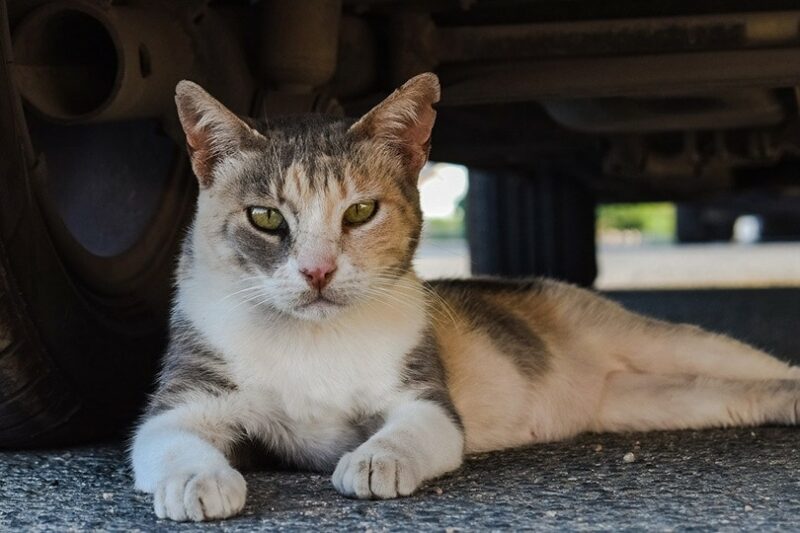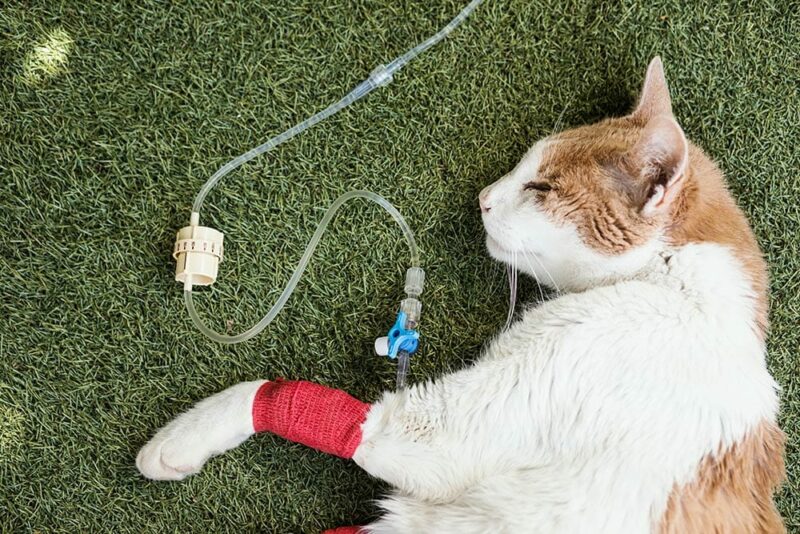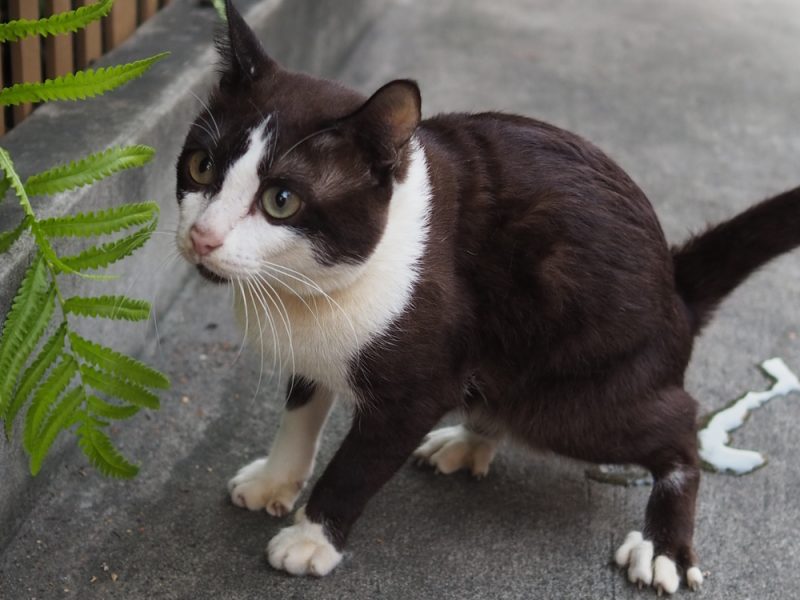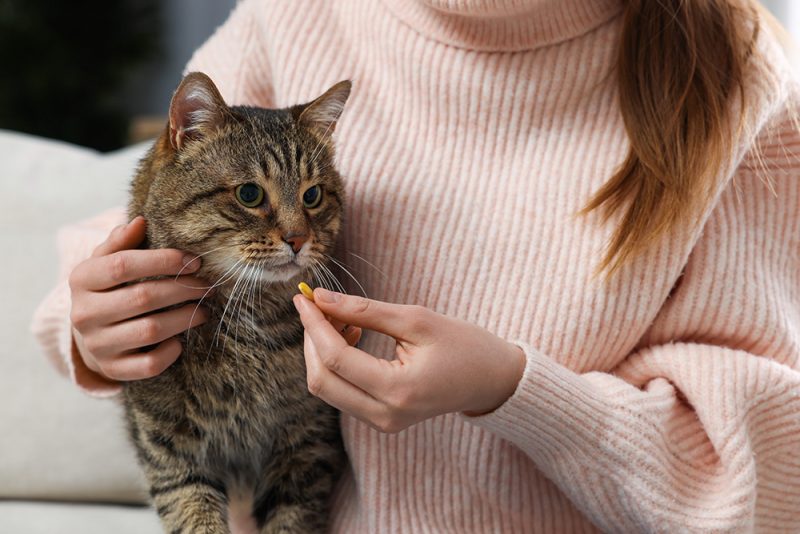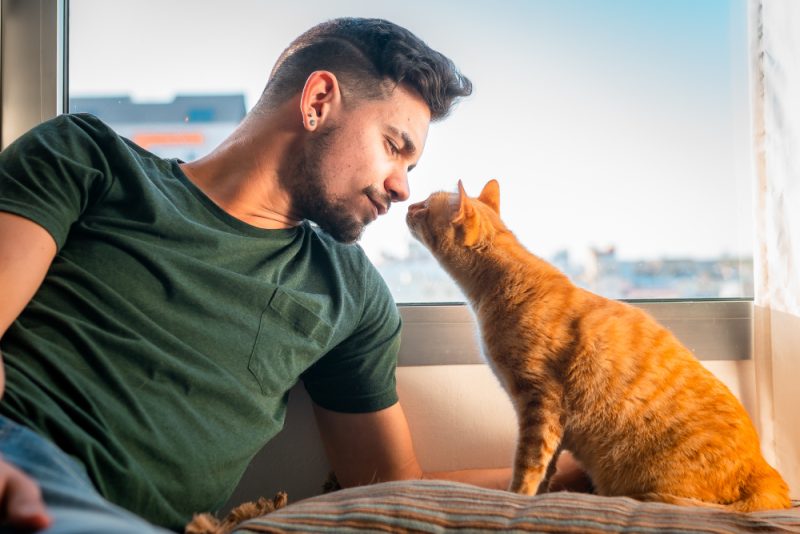It’s difficult for an animal lover to walk or drive down the street only to find homeless cats roaming around. In some neighborhoods, entire populations of cats are fending for themselves and have since they were born. These cats, who have no interactions with humans and live outdoors, are known as feral cats. These cats have never had a bed to cuddle in or an owner to dote on them. When seeing these cats wandering around the neighborhood or down the street, you may ask yourself, can a feral cat be domesticated and become a house pet?
Unfortunately, the answer to that question is a bit tricky. You’ll find experts out there who say domesticating an adult feral cat isn’t possible and to only try this with kittens. But you’ll hear stories of people claiming they’ve done it. Is the cat that’s been tamed truly feral or was it an abandoned cat that needed a bit of coaxing? What’s the difference? That’s what we’re here to learn. Let’s take a deeper look at feral cats, what they truly are, and whether they can ever be domesticated.

What Is a Feral Cat?
Not every cat you see that runs when you approach it is a feral cat. Unfortunately, this world is full of cruel people who do heartless things. Often, animals are the ones who suffer at the hands of these types of people. You’ll see cats wandering around, trying to find a meal, but they aren’t truly feral cats. In some cases, these cats have been abandoned or lost. While these cats may be scared of you, thanks to the situation they find themselves in, that doesn’t mean they are truly feral.
As we already mentioned, true feral cats are born in the wild and have never been domesticated. Abandoned and lost cats have, at some point, been domesticated and in some instances, loved. A true feral cat hasn’t had human interaction. They know nothing but the fight to survive and are not very open to changing that outlook.
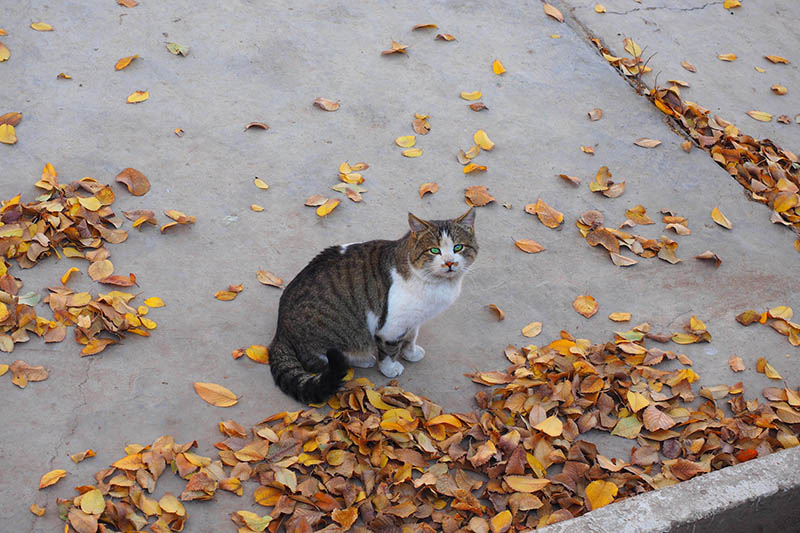
Can a Feral Cat Be Domesticated?
If you think about it, our lazy cats lying on the sofa had wild ancestors. They weren’t always pets. So, how did those cats find their way to humans? They were domesticated. Knowing this makes people with big hearts want to try when it comes to feral cats. If there isn’t at least an attempt, we know the likely outcome. This hope of helping is why the question of whether feral cats can be domesticated comes up. Unfortunately, not every feral cat out there can be domesticated. That doesn’t mean there aren’t some that can be. Ultimately, you won’t know, especially when it comes to adult feral cats, until you try.
One of the biggest reasons for large feral cat populations is out-of-control breeding. Feral cats have no owners to get them spayed or neutered. Instead, when a female cat goes through her heat cycle, all the males in her vicinity are going to be chasing her down. While many experts and organizations may tell you to steer clear of adult feral cats, they do seem okay with telling people feral kittens have a chance at being domesticated. Of course, the younger the kitten, the better since early socialization is key for success. Saving a feral kitten from the street is a great thing. However, you should be prepared as they aren’t instantly going to take to life in a home. Even though they are young, human interaction is still new to them and they will need time to adjust.

Tips for Taming a Feral Cat
If you want to throw caution to the wind and try to convince the beautiful feral cat in your neighborhood to become your friend, there are a few things you can try. As humans, we do have a few tricks up our sleeves. One of those tricks is something that all feral cats want: food. The life of a feral cat consists of nothing more than seeking out food, shelter, and safety. If you offer a bit of food, it may be hard for them to deny the easy meal. Don’t think this means they’ll jump right in your lap. You’ll need to set out food each day, allowing the cat to see you when you do it. This will help them associate you with something good. In the beginning, stay back and give the cats ample room to enjoy their meal. Every few days, however, move a little closer until eventually, the feral cat will allow you into its space.
Don’t think this means they’ll jump right in your lap. You’ll need to set out food each day, allowing the cat to see you when you do it. This will help them associate you with something good. In the beginning, stay back and give the cats ample room to enjoy their meal. Every few days, however, move a little closer until eventually, the feral cat will allow you into their space.
If you’re consistent and win over the cat in question, attempting to pet it is the next step. This is often where most fear sets in. Feral cats have never felt human love or touch. It’s natural for them to be afraid. Take it slow and allow them to sniff your hand if they’re willing. A cat may even allow touch and then run, leaving you to start the process all over again. Persistence is the key. Unfortunately, however, this isn’t always going to work, but if you’re determined, it’s worth trying.
If the cat finally comes around and allows you close, never attempt to take the cat inside your home. Any feral, stray, or unknown cat should be seen by a veterinarian before you attempt to share your living space with them.
Finally, if you succeed and the cat is given a clean bill of health, taking them into your home doesn’t mean they’re domesticated. Yes, they will be safer, but there will always be a bit of wildness in the cat. They may be friendly to you and avoid everyone else. The kitty may spend most of its time hiding. Be prepared for any scenario if you decide a feral cat is the right friend for you.
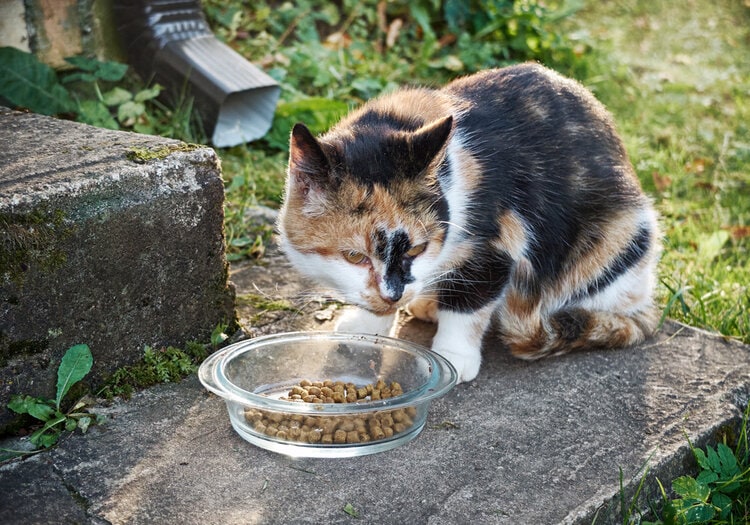
How You Can Help
With domesticating feral cats being so hit or miss, and in some cases dangerous, you may want to help in other ways. Some cats simply aren’t tamable. If this is the situation you find yourself in, offering a bit of assistance to the kitties is your only option. This can be food, shelter you set up in the community to keep them out of the cold, or contacting trap-neuter-return (TNR) groups. These are programs where feral cats are caught, spayed, or neutered, then returned to the area they frequent.
While this isn’t giving the cats a proper home, it does help control the population. Unfortunately, the life span for many feral cats is very short. These programs help stop kittens from going through the same cycle and suffering a sad fate. You can also help by donating to these trap-and-release programs so they can continue helping the feral cats in your area.

Final Thoughts
For cat lovers, it’s difficult to imagine that there are so many out there without a home. While some feral cats might be domesticated, not all of them can. You must remember this and not get discouraged. Instead of simply giving up if the cat you’re wanting to help doesn’t come around, think outside the box and do other things to help them live a better life.
Featured Image Credit: dimitrisvetsikas1969, Pixabay
